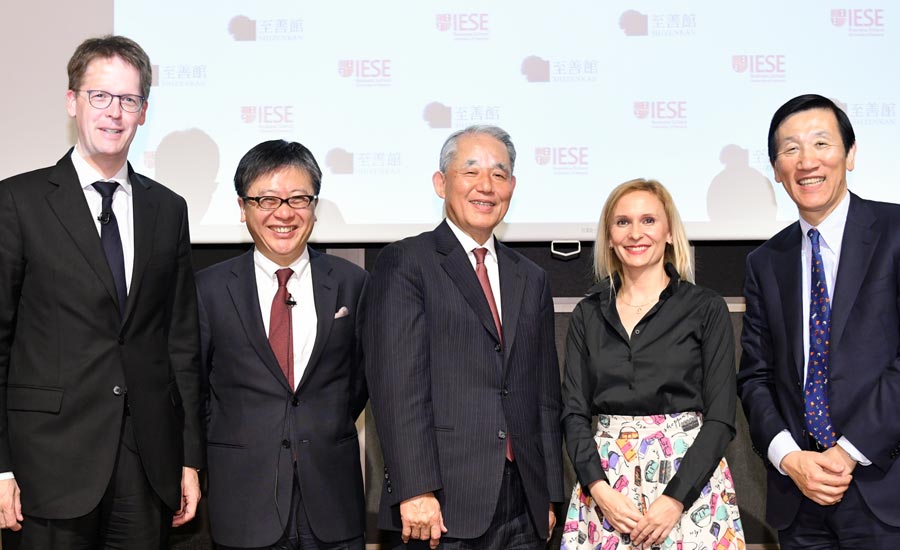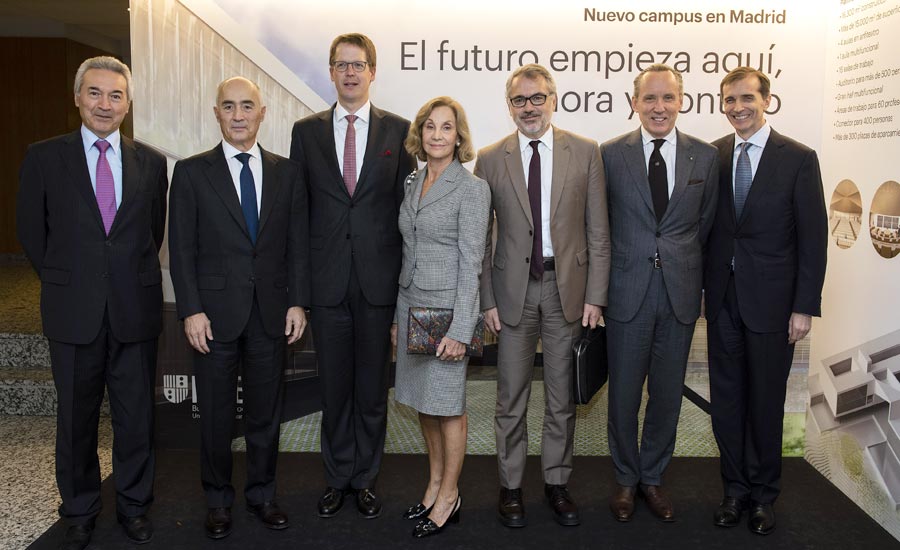Stories
To Achieve Global Leadership Excellence, Look Within
Executives in Japan stress personal integrity, accountability
April 16, 2018

“A good leader needs to lead him or herself,” Yasuchika Hasegawa, corporate counselor of Takeda Pharmaceutical Company, told alumni and friends at a recent event in Tokyo, Japan.
By reflecting on his purpose, Hasegawa comprehended that everyone is multi-dimensional and almost everyone in an organization wants to help others and improve society. This informed his leadership of Takeda, whose values of fairness, honesty and perseverance underpin its strategy.
Seiji Yasubuchi, Visa Japan’s country manager, concurred with Hasegawa on the importance of self-knowledge and personal integrity in successful global leadership. “You need to be ready to talk about who you are … what’s important to you, what you want to achieve, as well as what you’d never do,” he said.
The Visa executive, whose career has included leadership roles in UBS and GE, said he keeps a close eye on his “say/do ratio”. Great leaders should “Say what you mean and do what you say.”
Yasubuchi also highlighted the global business leader’s responsibility to actively leverage diversity, in order to spark innovation in the organization. And it has to be a true, authentic commitment to diversity, not just ticking the box. “Diversity is somewhat easy to create; inclusion is much harder to achieve,” he said.
It was a leadership challenge faced by Carolina García Gómez, deputy CEO/country manager IKEA Japan, while working in Eastern Europe earlier in her career. Women were under-represented in management positions in that region, so she identified and removed any perceived barriers and empowered them to aim higher.
Incorporating the Cultural Component
On the topic of leadership across time zones, García Gómez said one shouldn’t underestimate the cultural component: she adapted her leadership style in Eastern Europe when a collaborative approach failed to launch. At the end of the day, “you have to be yourself,” the IKEA Japan deputy CEO said. For García Gómez, that means being positive and taking risks.
According to Hasegawa of Takeda, this ability to embrace change is one of the key traits in successful global leadership. “It’s not the strongest of the species that survives, it’s the one who adapts to the new environment,” he pointed out.
Effective global leaders also set out a clear vision, and then communicate that vision to their team in order to align objectives, he said. Yasubuchi of Visa also put an emphasis on crystal clear communications. “We are not mind readers, so share what you believe and your values,” he said, adding that successful leaders should always apply critical thinking in those town hall meetings or conference calls.
Another common trait in successful global leaders is the ability to see the big picture. During his tenure as CEO of Takeda, Hasegawa knew some proprietary patents for its pharmaceutical products were due to expire. In response, he moved to improve company performance by benchmarking best practices with Takeda’s peers, then diligently got to work closing the gaps.
Many books on leadership promise to reveal the secret sauce, but Hasegawa doubts just reading would result in more effective leadership. Instead, he suggested that alumni and participants identify which theories they identify with most, then see if they complement their personal leadership style.
IESE and Japan’s Shizenkan University Form Partnership
The event was hosted by IESE and Japan’s Shizenkan University to mark the signing of an agreement between the institutions to develop executive education programs in the region. Franz Heukamp, dean of IESE, and Tomo Noda of Shizenkan University signed the new partnership.
In line with both schools´ philosophies, programs will be developed with an emphasis on the humanistic aspects of business leadership. “Shizenkan University´s holistic leadership philosophy dovetails nicely with the approach of IESE. At IESE, we have always stressed the importance of business leaders factoring in to the decision-making process what impact a particular action will have on people both inside and outside the company,” Dean Heukamp said. “Together we aim to help promote a sustainable, positive relationship between business and the world at large.”


